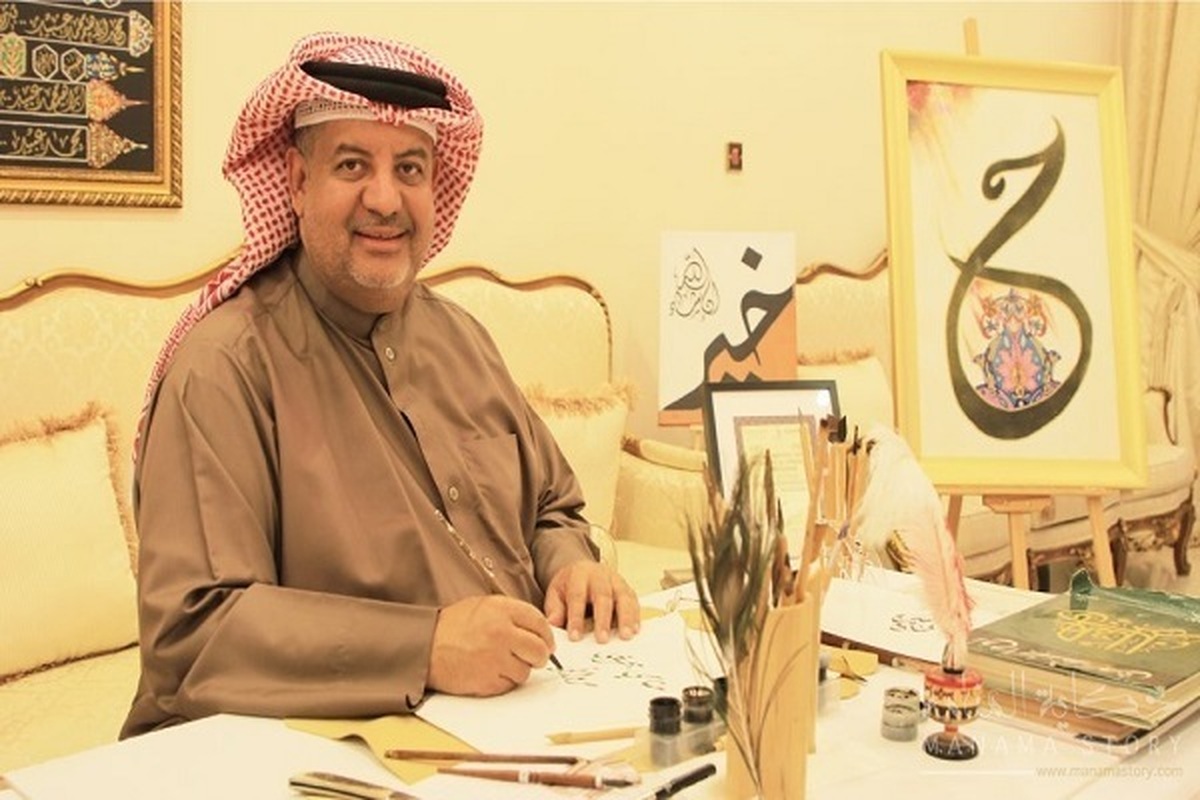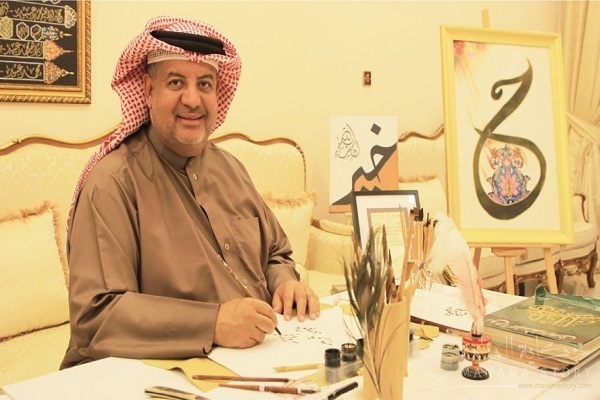Bahraini Calligrapher Says Transcribing Quran Has Increased Interest in Arabic Calligraphy


Ibrahim Ubaid was raised in a family that owns some of the largest libraries in Bahrain, including the National Library, the Bahrain Library, the New Generation Library, and the Ubaid Library.
He also established his own library, which is unique in that it is the first of its kind in Bahrain and the Persian Gulf region that houses calligraphed books and everything that appeals to calligraphers and enthusiasts of Arabic calligraphy.
In an interview with the Bahraini newspaper Al-Watan, he said, “In 2014, I founded the Calligrapher's Library, which is a continuation of the famous Ubaid Librar, a library my father opened in 1961 and operated until 2013, when it was closed due to my father’s illness. This library, in turn, is an extension of the National Library established by my grandfather, Ibrahim Muhammad Ubaid, in 1929.”
Speaking about calligraphy of the Holy Quran, he said, “During the COVID-19 pandemic and quarantine, I had a lot of time. I began transcribing the Holy Quran. I prepared a special place and, while always maintaining ablution, focused on writing the Quran. I wrote 67 pages, and upon review, I realized there were mistakes—some diacritical marks or letters had been omitted. This made me reflect on the matter.”
He added, “I asked myself, why is the Holy Quran written exclusively by calligraphers? Why is this their exclusive right? Why can’t each of us write our own version of the Holy Quran? In fact, God guided me to an idea: to print the 30th Juz (part) of the Quran in a way that others can write on it using their own handwriting and have their own version of the Holy Quran. This also helps ensure that no word or letter is left out.”
Read More:
He added that he has sent copies of this idea to Kyrgyzstan, Bosnia, Turkey, and Pakistan, emphasizing that it has been met with significant enthusiasm and that many people have developed an interest in Arabic calligraphy.
4278585



